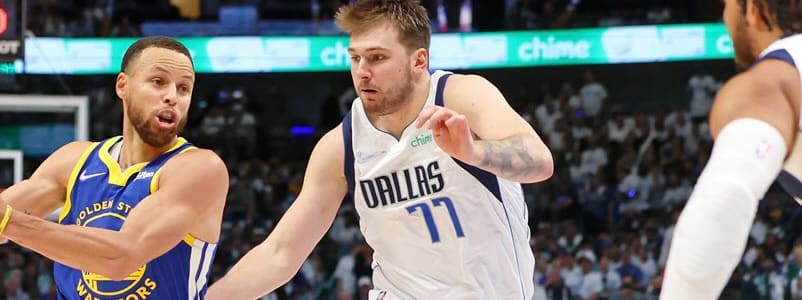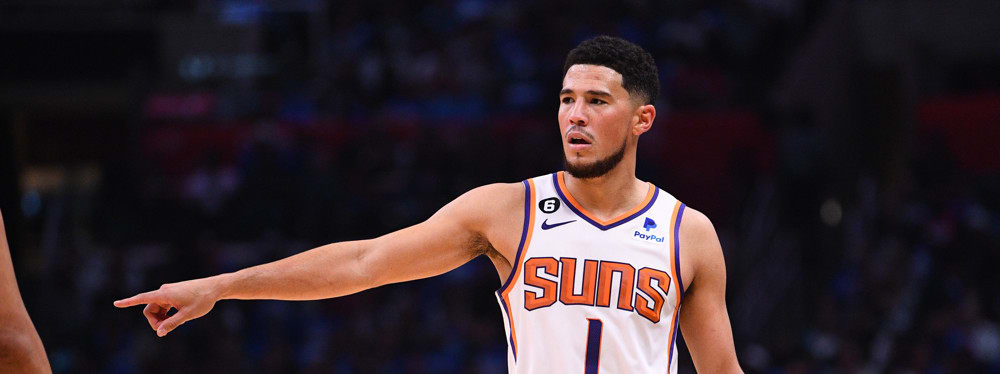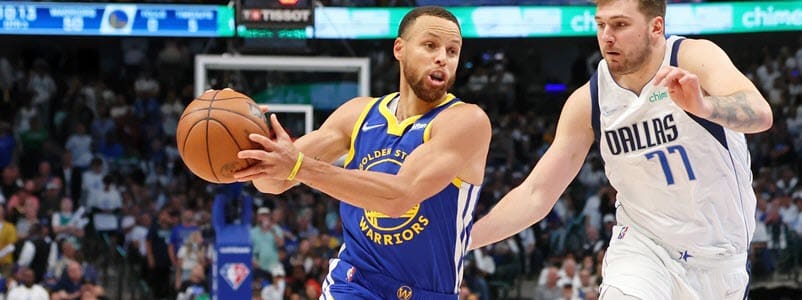Recent RotoWire Articles Featuring Markieff Morris
See More
Coming off an injury-plagued season in Miami, Morris will line up for the Nets this season, assuming a similar role to the one he saw with the Heat. Across 43 games in 2021-22, he only managed top-350 production, averaging 7.6 points and 2.6 rebounds in 17.5 minutes per game. While he does provide a nice veteran piece for the Nets, he will be relying on injuries to other players to have any shot at fantasy relevance.
Morris had a relatively consistent role with the Lakers last season, and he really stepped up when Anthony Davis went down with an injury. He made 24 consecutive starts from late February to late April and averaged 10.7 points, 6.3 rebounds and 1.5 assists in 26.1 minutes. Now with the Heat, Morris could see that kind of workload this season. He and P.J. Tucker appear to be the only two real rotational power forwards on the team, and it's possible they split time at the position. Morris is also capable of playing some small-ball five in a pinch. The last time Morris saw over 24 minutes per game was during the 2017-18 season in Washington, where he saw 27.0 minutes and ranked 114th in per-game production. He doesn't have a ton of upside in Miami with plenty of other scorers and rebounders around, but Morris is at least someone to consider with a late pick in a deep league.
Morris began the season with Detroit and got off to a solid start in the opening weeks. He was traded to Los Angeles mid-way through the season, however, and his numbers declined significantly. Morris' scoring was more than cut in half, and he lost over a third of his minutes after donning the purple and gold. On the season as a whole, Morris logged 14.2 minutes, while averaging 5.3 points and 3.2 rebounds, but he provided the occasional big game due to his three-point shooting. He wasn't overly consistent in this area, though some excellent playoff performances (including five triples in Game 3 of the NBA Finals) helped him finish the season on a high note. With some new faces in Los Angeles this season, Morris' role could be reduced further, and he's not worth a look outside very deep redraft leagues.
Last season was a tough one for Morris, as he suffered a fairly serious neck injury while with Washington, was traded to and waived by the Pelicans, and then signed with the Thunder once he was medically cleared to play. The result was Morris appearing in just 58 games and posting his fewest points per game (9.4) since his second season in the NBA. He also shot just 33.5 percent from behind the arc after back-to-back seasons shooting over 36 percent. Now, Morris is headed to Detroit, where will have a lot to prove both health and skill-wise. But he should have a good opportunity to do so for a team that is looking to make the playoffs yet again. While Blake Griffin is locked in as the team's starting power forward, Morris should start the season as Griffin's primary backup, and Morris' versatility gives him the ability to play both small forward and the small-ball five. It's also worth noting that Griffin hasn't played a full season since his rookie year, and with the All-Star coming off arthroscopic knee surgery this offseason, Morris may have the opportunity to make some spot starts this year.
Morris had another steady season in Washington this past year, starting all 73 games he played in. His overall numbers dipped a bit, though, averaging 11.5 points, 5.6 rebounds, 1.9 assists and 0.8 steals across 27.0 minutes. That was down from 14.0 points, 6.5 rebounds, 1.7 assists and 1.1 steals in 31.2 minutes during the 2016-17 campaign. However, his three-point shooting (1.0 3PM) remained a strong suit and he was able to convert on over 36 percent of his deep balls for a second straight season. He also finished with a 48 percent clip from the field and knocked down 82 percent of his free throws, giving Morris strong overall percentages. Heading into 2018-19, Morris likely remains the fourth option offensively, as John Wall, Bradley Beal and Otto Porter all return once again. The Wizards did replace last year's starting center, Marcin Gortat, with Dwight Howard, who has averaged 12.7 rebounds throughout his 14-year career. As a result, Morris' rebound numbers could take a hit once again and he likely won't be utilized as much as a small-ball center. With less boards available and yet another big man absorbing touches, Morris' value should take a slight hit. That said, his reliable percentages and ability to hit three-pointers still puts him in consideration for the later rounds of Fantasy drafts.
Morris, during his first full season with the Wizards, built on his already solid foundation as a nice mid-tier power forward option. Notably, he became a sharper three-point shooter, making a career-high 36.2 percent of his looks from long range on 2.6 attempts per contest. Overall, on the year, he averaged 14.0 points, 6.5 rebounds, 1.7 assists and 1.1 steals across 31.2 minutes per appearance while shooting 45.7 percent from the field. While he’s the third or fourth option in the Washington offense (behind John Wall, Bradley Beal and possibly Otto Porter), limiting his ceiling, having a great passing point guard in Wall ensures Morris usually gets a respectable amount of touches. That, combined with his solid workload, gives him a relatively high floor. The 28-year-old can put together a big game here and there, however. Last season, he put up 14 games with at least 20 points and 10 games with at least 10 rebounds. With all that in mind, Morris should be considered in the mid-to-late rounds of most Fantasy drafts. Reaching for him earlier than that should probably only be done to avoid a player with a much lower floor.
Following the trade of his twin brother Marcus to the Pistons last July, the combustible Morris didn’t shy away from making it known that he wanted out of Phoenix. Despite his two-way talent and relatively affordable four-year, $32 million contract, the Suns were similarly motivated to move Morris, but couldn’t find an offer they liked in the offseason, an understandable scenario given the forward’s off-court baggage. Morris eventually backed away from his trade demands and joined the Suns for training camp, but it didn’t take long for him to stir up trouble. Through the first few months of the season, Morris saw his role in then-coach Jeff Hornacek’s rotation decline, and even failed to see the court during a four-game stretch despite being healthy. Morris’ contentious relationship with Hornacek came to a head in a Dec. 23 contest, when he threw a towel at the coach in frustration after being subbed out of the game. After serving a two-game suspension, Morris and Hornacek were able to publicly patch up their differences, but it was no secret the Suns were still motivated to trade the forward following yet another instance of insubordinate behavior. Perhaps as a means of showcasing him to other teams, the Suns reinserted Morris into the starting lineup for five games prior to the All-Star break, and he responded with his best production of the season, averaging 20.6 points, 7.6 rebounds, 4.6 assists, 1.4 blocks and 1.0 steal in 34.9 minutes per game. That strong stretch of play finally allowed the Suns to find a trade partner, with the 27-year-old being sent to the Wizards on Feb. 18 in exchange for a protected first-round pick. Morris would go on to appear in 27 games with the Wizards, starting 21 of them and averaging 12.4 points, 5.9 boards and 1.4 assists while shooting 46.7 percent from the field. Now a member of an organization that seems committed to him as their starting power forward, Morris should be in for a relatively drama-free campaign, but from a fantasy perspective, his value probably takes a hit in Washington, where he’ll often rank as a fourth or fifth option on the offensive end while sharing the court with John Wall, Bradley Beal, Marcin Gortat and Otto Porter.
After an encouraging 2013-14 campaign in which he posted career-highs across the board, Morris took his game to a new level last season, averaging 15.3 points, 6.2 rebounds, and 2.3 assists in 32 minutes per game while shooting 47 percent from the floor. Morris started all 82 games for the first time in his career, though he's been one of the league's more durable players since entering the league in 2011, as he's missed only one game over the last three seasons. At 6-10, Morris has the size to bully smaller defenders inside, but he showed an increased desire to operate in the mid-range and perimeter last season. Per Basketball-Reference, more than 60 percent of Morris' field goal attempts came from beyond 10 feet, with a career-high 25 percent coming from the mid-range. As a result, Morris got to the line less frequently, attempting 2.8 free throws per game, down from 4.0 per game in 2013-14. His percentage also took a slight dip, sinking from 79 percent in 2013-14 to 76 percent last season. As of late-August, Morris remains a member of the Suns, but there's a good chance that could change. Extremely displeased by the organization's decision to trade his twin brother Marcus to Detroit this offseason, Morris lashed out at the organization, expressing his desire to be moved before the start of the season. Morris told reporters that he will show up for training camp, but he insisted that he's "going to be out" before the season gets underway. Whether the Suns will comply with Morris' demands remains to be seen, but if they opt to keep Morris around, the situation figures to become even more tumultuous.
Morris is entering his fourth season in the NBA, all of which have been with the Suns. In 2013-14, Morris enjoyed a career season, averaging 13.8 points, 6.0 rebounds, 1.8 assists, 0.6 blocks, and 0.8 steals in 23 minutes per game. He shot 49 percent from the field on 10.4 shots, 32 percent from three on 1.3 shots, and 79 percent from the free-throw line on 4.0 shots per game. With a starting gig all but guaranteed, Morris is a sure bet to continue seeing similar playing time this season. He averages solid points totals and chips in decent rebounding numbers but does little else to warrant fantasy consideration. Without Channing Frye on the roster, it's possible that Morris sees a slight increase in minutes and with it an increase in scoring and rebounding. The more likely scenario is that he maintains his role, with Anthony Tolliver, T.J. Warren, and others absorbing Frye's minutes. It remains to be seen whether Morris can replicate last season's production, but he's one of the more versatile, high-upside wing options in 2014-15.
Morris showed modest statistical improvement last season, mostly a result of a slight increase in playing time. He stretched the floor as a 6-10 forward and managed to make better than 33 percent of his threes for a second straight season. A sagging field goal percentage and lack of shot-blocking ability saps his value.
Morris seems to have a skillet that can help most NBA teams. He can shoot, defend and rebound at a high level. For whatever reason he did not get much playing time this year, and with the addition of Scola, it's likely that he just got bumped from bench player to bench warmer.
Morris is an intriguing rookie coming out of Kansas. He has legitimate size for a power forward (6’10, 245), and could even see some minutes at center. He was a monster on the glass at Kansas, and has legitimate three-point range. If both Lopez and Warrick continue to underwhelm, Morris could find himself some playing time and is a talented enough big to have fantasy value.













